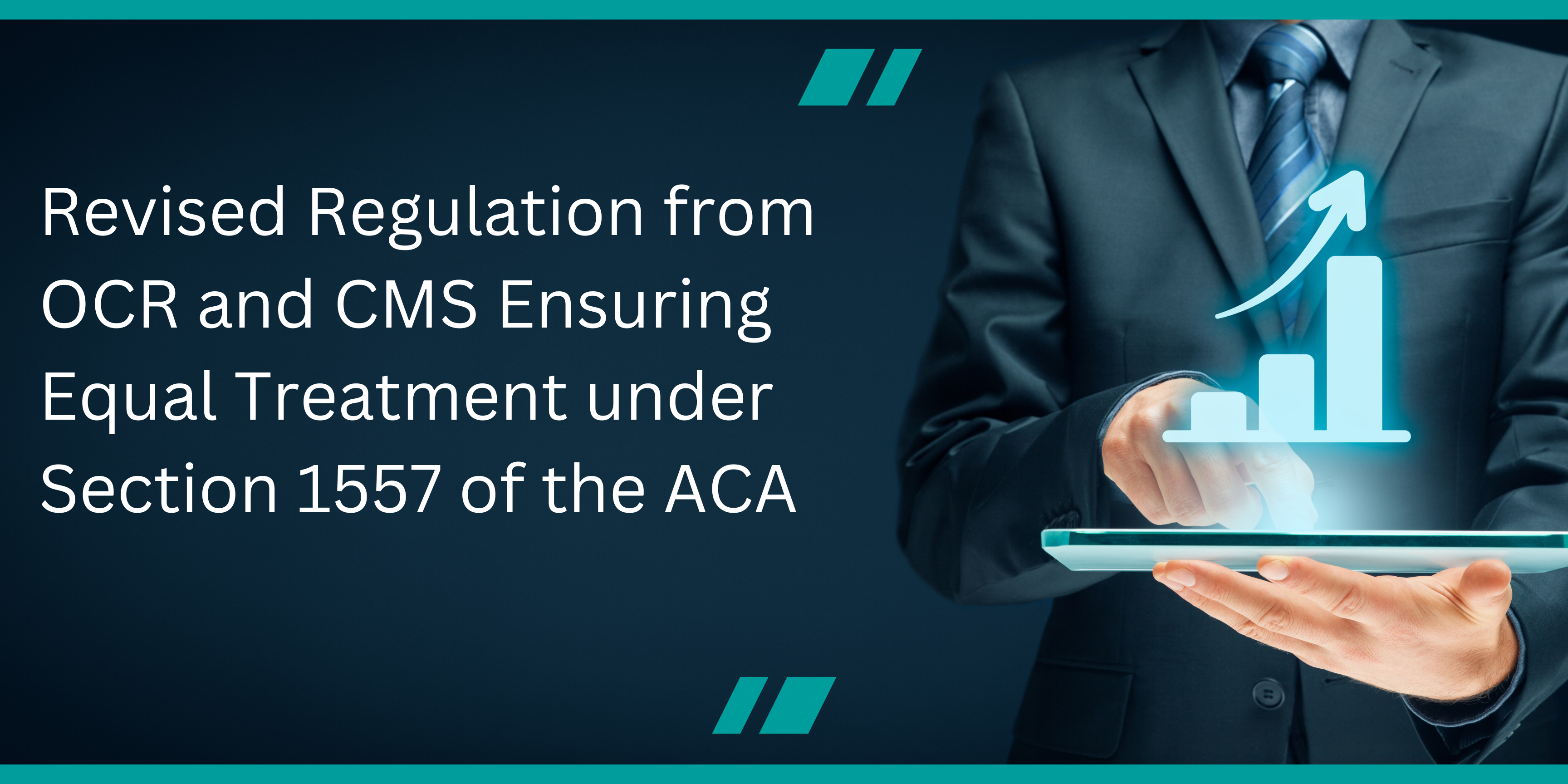
Revised Regulation from OCR and CMS Ensuring Equal Treatment under Section 1557 of the ACA
The U.S. Department of Health and Human Services (HHS), along with the Office for Civil Rights (OCR) and the Centers for Medicare & Medicaid Services (CMS), made a big decision on April 26, 2024. They created a final rule under Section 1557 of the Affordable Care Act (ACA). This rule is about stopping unfair treatment in health care. It says that healthcare programs or activities that receive money from the government can't discriminate against people based on race, color, where they're from, gender, age, or disability.
The rule also clearly identifies who must follow these fairness rules. It says that companies or organizations that receive government money for health care must treat everyone fairly. It gives specific examples of fair treatment, like ensuring women get the same care as men and helping people with disabilities access health care easily. It also says that people who speak different languages should get language help for free. The rule also says that covered entities need to have someone in charge of ensuring that they follow these rules and providing a way for people to complain if they don't. It covered entities to tell people about their rights and language help in the most common languages spoken where they are.
The rule will start on July 5, 2024, but covered entities have some extra time to get ready for it. Even though some groups wanted to be exempt from the rule for religious reasons, the government decided not to include that exemption. However, organizations can ask for assurance if they think they should be exempt for other reasons. This rule helps stop unfair treatment in health care based on things like race, color, where you're from, your gender, age, or if you have a disability. It's all about making health care fair for everyone. Secretary Xavier Becerra said this rule is a huge step forward for fairness in health care. He wants everyone to know they can stand up against discrimination if they experience it.
The OCR Director, Melanie Fontes Rainer, thinks this rule is essential for ensuring everyone gets fair health care. She's heard too many stories about people facing unfair treatment, and this rule is meant to stop that. CMS Administrator Chiquita Brooks-LaSure believes this rule is an essential part of making sure everyone has access to good health care, no matter who they are. This rule brings back protections that were taken away before and makes sure health care is more accessible for everyone. It says that healthcare providers have to let people know if they offer language help or accessibility services for free.
The rule also makes it clear that health programs and activities provided online or over the phone need to be accessible to everyone, including those who speak different languages or have disabilities. It also says that discrimination against LGBTQI+ people is not allowed, and it respects people's religious beliefs. With more and more health care using technology like AI, this rule also makes sure that these tools don't discriminate against anyone. Overall, this rule is about making sure everyone gets fair and equal treatment in health care, no matter who they are.
In addition, the Department is updating its interpretation of whether Medicare Part B qualifies as Federal financial assistance concerning civil rights enforcement. The Department is also amending regulations to reinforce prohibitions against sex discrimination in various CMS-administered programs, including Medicaid and the Children's Health Insurance Program (CHIP), Programs of All-Inclusive Care for the Elderly (PACE), health insurance issuers and their representatives, State Exchanges, and agents, brokers, or web-brokers involved in enrollment activities. Moreover, these revisions address the responsibilities of issuers providing essential health benefits (EHB) and qualified health plan issuers.
By issuing this final rule, the Department aims to enhance the implementation of nondiscrimination protections across a broad spectrum of health-related programs and activities, ensuring equitable access and treatment for all individuals, regardless of their demographic characteristics.




